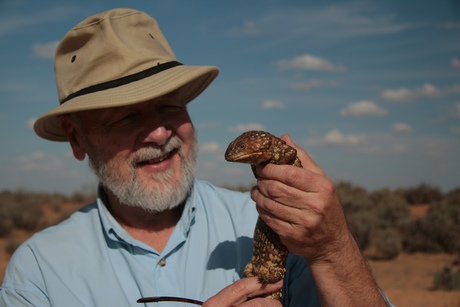2016 Prime Minister's Prizes for Science

The 2016 Prime Minister’s Prizes for Science were awarded last night at a dinner attended by Prime Minister Malcolm Turnbull and the Minister for Industry, Innovation and Science, Greg Hunt, in the Great Hall of Parliament House.
The prizes were described by Hunt as “Australia’s most prestigious public celebration of achievement in science”. They are intended to inspire a sense of national pride by recognising the achievements and success of Australian scientists and innovators to both Australia and internationally, as well as the role science educators play in inspiring and encouraging students to take an interest in science and consider science as a career.
Prizes worth a total of $750,000 were awarded across seven categories to seven recipients, three of whom have received Australian Research Council (ARC) support throughout their research careers. Of particular note was the newly introduced Prize for New Innovators — an award to recognise the achievements of early-career innovators in the commercialisation of scientific research that has had substantial beneficial economic, social and/ or environmental impacts.
The full list of award winners is as follows:
Prime Minister’s Prize for Science: Richard Shine, University of Sydney
Using behavioural conditioning, Professor Richard Shine (pictured) and his team have successfully protected native predators against a cane toad invasion in Western Australia. He has created traps for cane toads and taught quolls and goannas that toads are ‘bad’. He now plans to release small cane toads ahead of the invasion front in what he calls a counterintuitive “genetic backburn”.
Prime Minister’s Prize for Innovation: Michael Aitken, Capital Markets CRC/Macquarie University
Professor Michael Aitken has been awarded for creating and commercialising tools that are making markets fair and efficient. He and his team created a service that captures two million trades per second, enabling rapid analysis of markets. Then he created the SMARTS system to detect fraud. Now he’s applying his information technology and markets know-how to improve health, mortgage and other markets.
Prize for New Innovators: Colin Hall, University of South Australia
Using his experience in the spectacle industry, Dr Colin Hall developed the combination of five layers of materials that will bind to plastic to create a car mirror that performs as well as glass and metal — for a fraction of the weight. His process will allow manufacturers to replace components made from materials like glass in cars, aircraft, spacecraft and even whitegoods, making them lighter and more efficient.
Malcolm McIntosh Prize for Physical Scientist of the Year: Richard Payne, University of Sydney
Professor Richard Payne makes peptides and proteins based on what he observes in nature, say, in a blood-sucking tick. Then he uses chemistry to recreate and re-engineer the molecule to create powerful new drugs, such as anti-clotting agents needed to treat stroke. His team is developing new drugs for the global challenges in health including tuberculosis (TB), malaria and antibiotic-resistant bacterial infections.
Frank Fenner Prize for Life Scientist of the Year: Kerrie Wilson, University of Queensland/ARC Centre of Excellence for Environmental Decisions
Associate Professor Kerrie Wilson can put a value on clean air, water, food, tourism and the other benefits that forests, rivers, oceans and other ecosystems provide. She can also calculate the most effective way to protect and restore these ecosystems. Around the world, she is helping governments to make smart investments in conservation.
Prime Minister’s Prize for Excellence in Science Teaching in Secondary Schools: Suzy Urbaniak, Kent Street Senior High School
Starting out as a geoscientist before becoming a science teacher, Suzy Urbaniak realised there needed to be a stronger connection between the classroom and what was happening in the real world, out in the field. She decided she wanted to turn the classroom into a room full of young scientists, rather than students learning from textbooks.
Prime Minister’s Prize for Excellence in Science Teaching in Primary Schools: Gary Tilley, Seaforth Public School/Macquarie University
Gary Tilley recognised a long time ago that the way science was taught in primary schools needed to change. He has taken it upon himself to mentor the younger teachers at his school, and helps train science and maths student teachers at Macquarie University through its Opening Real Science program.
How librarians can help maintain image integrity
By sharing best practice and providing useful resources, librarians can support researchers in...
Winners announced for 2025 Australian Museum Eureka Prizes
Now in their 35th year, the Australian Museum Eureka Prizes continue to highlight some of the...
"Damning" review of Forensic Science Queensland released
The review of the troubled forensic service provider reveals unreliable results,...



